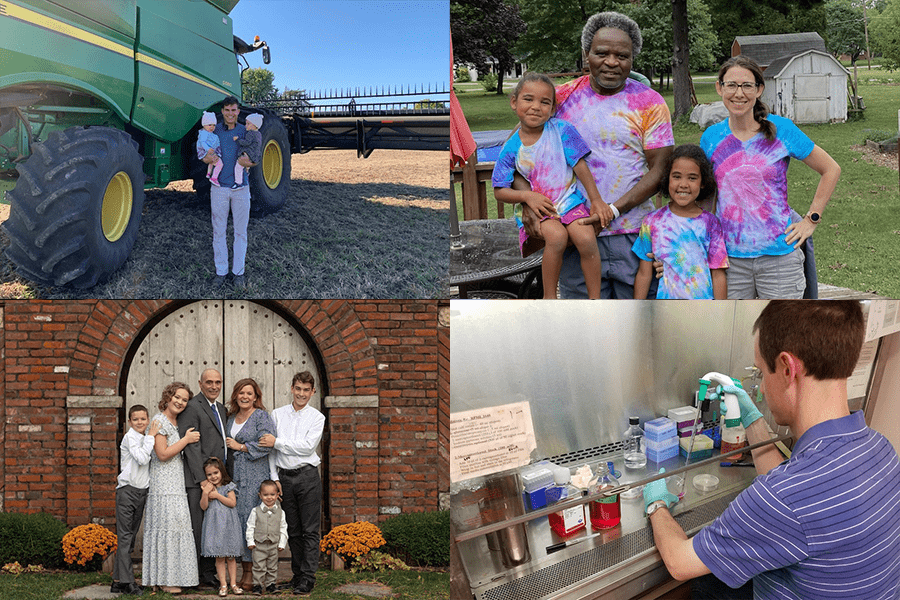Mychael Spencer: Age 31
IU School of Medicine campus: Indianapolis (MS1)
Former career: K-12 educator and administrator
Mychael Spencer has wanted to be a doctor ever since he was 10—when he started volunteering at Wishard Hospital in Indianapolis, where his grandmother worked as a mental health clinician. His job was to deliver books, games and other diversions to hospitalized patients. When he was older, he started shadowing physicians.
Teaching was meant to be temporary—a way to “give back” in honor of the teachers who saw his potential and changed the trajectory of his life.
“I struggled in school and just didn’t believe in myself as a student, but my middle school math teacher said, ‘You’re really smart. I want you to take an advanced math class,’” Spencer recalled. “That boosted my self-esteem, and, almost instantly, I went from an average or below-average student to high-performing.”
He went on to study biology on his university’s pre-med track. “My goal was to take a gap year or two to teach before going to medical school, and I ended up taking 10 years.”
 Trained through the Teach For America Program, Spencer started as a math and science teacher at Howe Community High School in the Indianapolis Public Schools (IPS) system. He loved working with young people and helping them see opportunities. Wanting to make a greater impact, he earned a master’s in education and organizational leadership, became a school principal and later moved into a central office role to lead the human resources and finance teams.
Trained through the Teach For America Program, Spencer started as a math and science teacher at Howe Community High School in the Indianapolis Public Schools (IPS) system. He loved working with young people and helping them see opportunities. Wanting to make a greater impact, he earned a master’s in education and organizational leadership, became a school principal and later moved into a central office role to lead the human resources and finance teams.
It took “a lot of soul searching” for Spencer to shift from education to medicine. In the end, he determined that following his lifelong dream to become a doctor would only expand his impact to advocate for historically marginalized and underrepresented populations.
“I’ve seen poverty and the challenges of the communities I hope to serve as a doctor,” Spencer said.
He also will be uniquely equipped for a future career in academic medicine—not just practicing as a physician but also teaching and helping to shape medical curriculum and medical school policy.
It's no surprise that his peers elected him as president of the Class of 2026. As a member of the Medical Student Council, he serves as a liaison between medical students and IU School of Medicine leadership.
“It’s a way to keep using the skills I’ve developed to serve my peers,” he said. “I love medical school—I get up every day really excited to go to school,” added Spencer. “I have wanted to do this for so long. I genuinely enjoy learning and the opportunity to get closer to my dream.”

